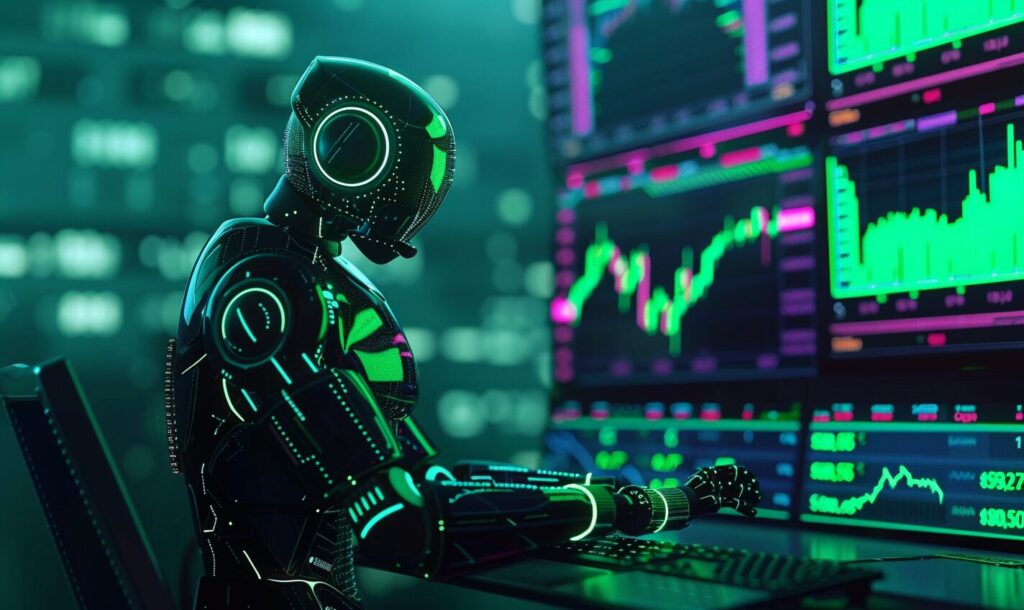Artificial intelligence touches almost every aspect of your day, from travel to work to the way you communicate with friends and family. Because artificial intelligence has become so normal, it’s easy to underestimate the impact it’s having on modern society. Read on for some examples of artificial intelligence in your everyday life.
What Is Artificial Intelligence?
Artificial intelligence (AI) refers to machines that have been programmed to complete tasks that typically require human intelligence. AI can recognize faces and voices, translate languages, give directions, and respond appropriately to people over the phone.
Computers are able to perform these tasks through three different types of programming: machine learning, deep learning, and natural language processing (NLP). Machine learning teaches computers to recognize patterns, and deep learning is a subset of machine learning that creates its own set of patterns.
Natural language processing gives computers the tools to translate and respond to human speech. This technology combines linguistics with computer programming and is used for any device that talks to you as if it were a person.
1. Digital Assistants
During their work hours, many people rely on digital assistants like Grammarly, Siri, and Alexa. These AI assistants are designed to make life more convenient and streamline your workflow. They save you time, help you catch mistakes, and generally do the work of an overeager personal assistant.
Email is another work tool that’s fitted with AI. Through a combination of machine learning and natural language processing, it works to block spam, remind you to send neglected emails, and respond to messages quickly. Your account is protected by anti-virus software that also uses AI to identify threats.
2. E-Banking
Thanks to AI, banking in the modern world is easier and more secure than ever. The artificial intelligence used by banks keeps tabs on patterns to protect you from any suspicious activity. It’s able to track every financial action you take to ensure you’re the only one accessing your accounts.
As identity and financial theft has become more sophisticated, so have the banking technologies that protect against it. AI makes it possible to deposit your checks and manage your accounts from a personal device without having to meet with a banker or leave your home.
3. Roombas
Household robots like Roombas also use AI to operate. This machine can adapt to individual homes, mapping your floor to avoid obstacles and leaving every inch dirt and dust-free. These robots are even programmed to return to their charging stations on their own, although they occasionally need some extra assistance from people.
Roombas are another example of how AI can make your life easier. Instead of cleaning your home yourself or hiring someone else to do it, you can buy a fairly inexpensive robot that will conveniently do the job while you sleep.
4. Facial Recognition
Many modern digital devices and high-security systems now use facial recognition to validate access to information. Because artificial intelligence can accurately identify detailed patterns, facial recognition technology is becoming a convenient, secure replacement for fingerprint ID models in some cases.
As an example, Apple’s facial recognition technology uses artificial intelligence to mark 30,000 infrared dots on each face. This scan is sent through a pattern recognition program that determines whether or not to let you into your phone. Because Apple’s AI scans your face in such detail, it would be incredibly difficult to fool.
5. Google
Artificial intelligence is the programming feature that makes using Google feel so intuitive and personalized. Through algorithmic updates like RankBrain, this search engine is able to predict user intent as well as gather data based on typed searches.
Google’s search suggestions and personalized advertisements are both the result of artificial intelligence at work in the system. This search engine uses various forms of machine learning, including deep learning, and relies on natural language processing to answer the questions of billions of people worldwide.
6. Social Media
Social media platforms like Facebook, Instagram, and Twitter all use artificial intelligence to maintain engagement and improve user experience. Every input you send from your account through follows, likes, and comments gives the background AI more information about what you’d like to see.
Recommendations are always the results of AI, whether they suggest people to follow or are ads that pop up in your feed. Many social media companies are able to gather data about their audiences across devices and online platforms, which means a product you looked at on your computer could show up in your Instagram feed a few hours later.
7. Transportation Services
Modern transportation also relies heavily on artificial intelligence systems. Like their other applications, travel AI programs make tasks easier for people. For example, GPS services map the globe and can predict current traffic conditions to give you the best route to work in real-time. Directional AI services are getting better and better over time.
The taxi service company Uber also uses artificial intelligence to maximize its efficiency and identify fraudulent accounts. Eventually, they hope to become a service of self-driving cars, relying fulling on AI to take customers from point A to point B. Although fully automated cars are still a work in progress, many pilots already rely on artificial intelligence to complete their flights.
Only a Few Examples of Artificial Intelligence in Everyday Life
AI is the new frontier of exploration for the modern world – there’s no knowing where it will take us. As people continue to develop and refine these technologies, AI will find more and more applications in everyday life. While artificial intelligence will never be able to replace humanity, it can help people learn, grow, and live with more accuracy, convenience, and security. Hopefully, these examples of artificial intelligence in everyday life show you just how prevalent AI is in today’s society.
Recent Stories
Follow Us On
Get the latest tech stories and news in seconds!
Sign up for our newsletter below to receive updates about technology trends














